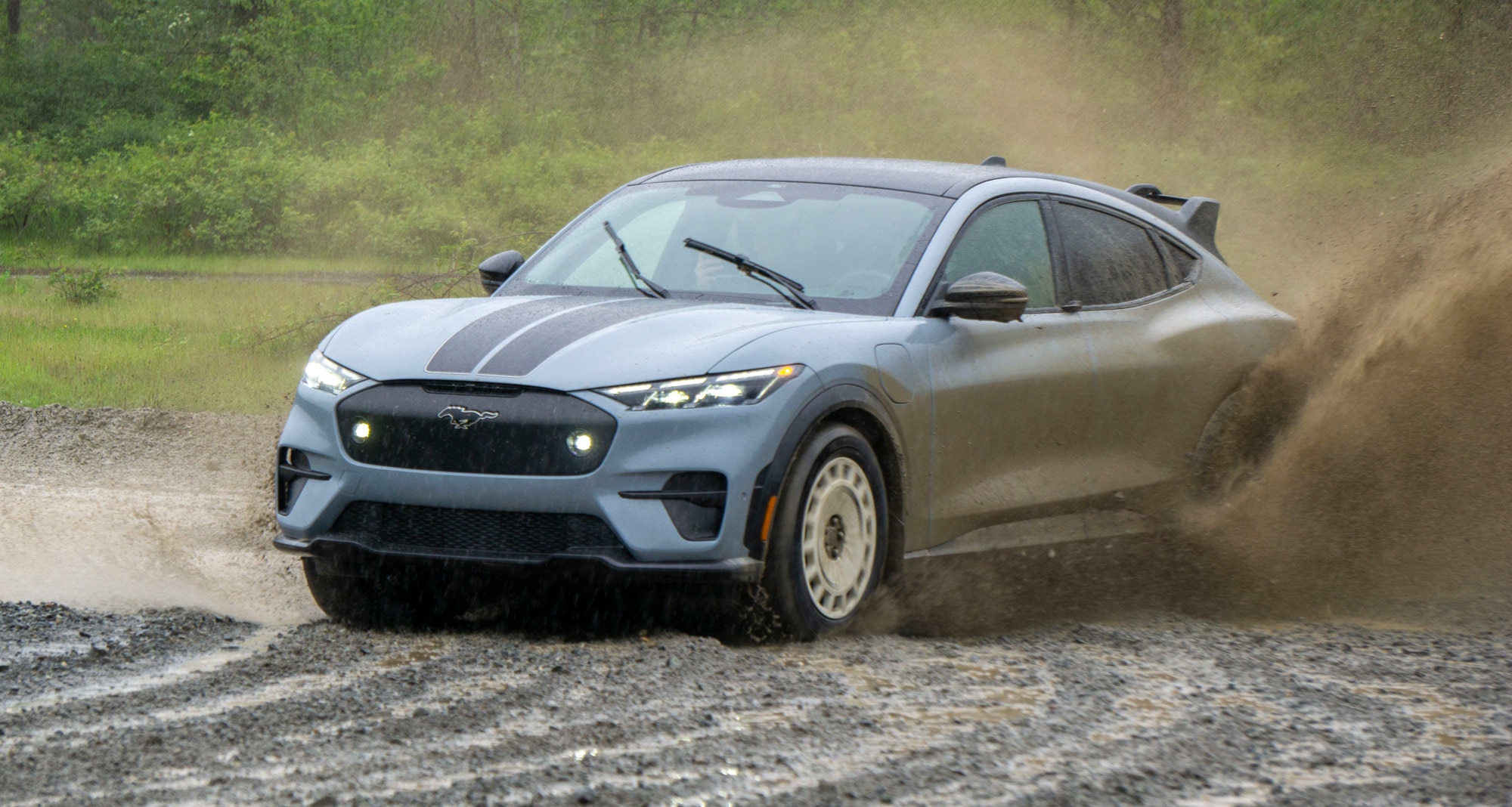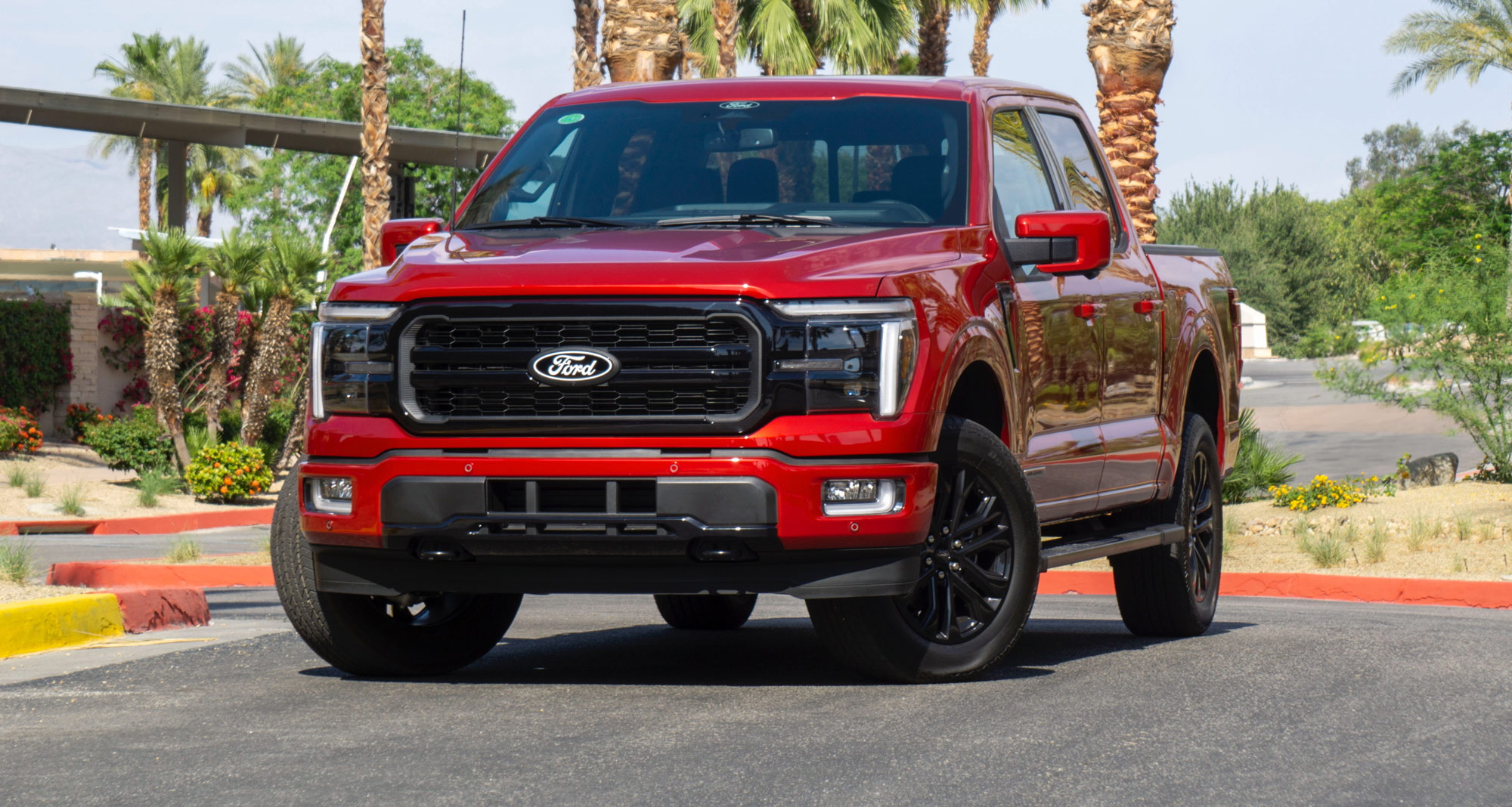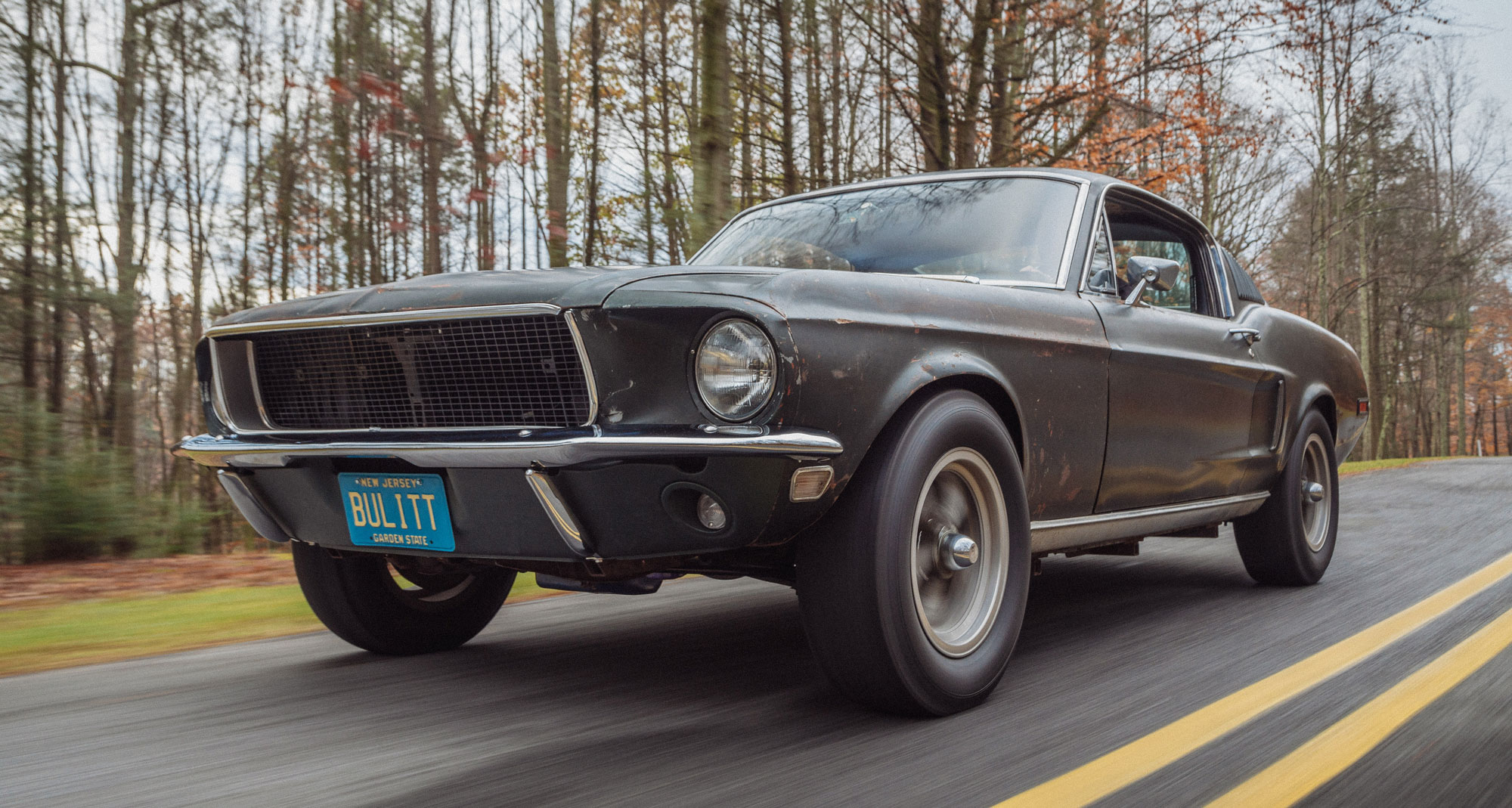Meet Afeela: The Honda-Sony Car
The so-called Playstation Car shapes up.
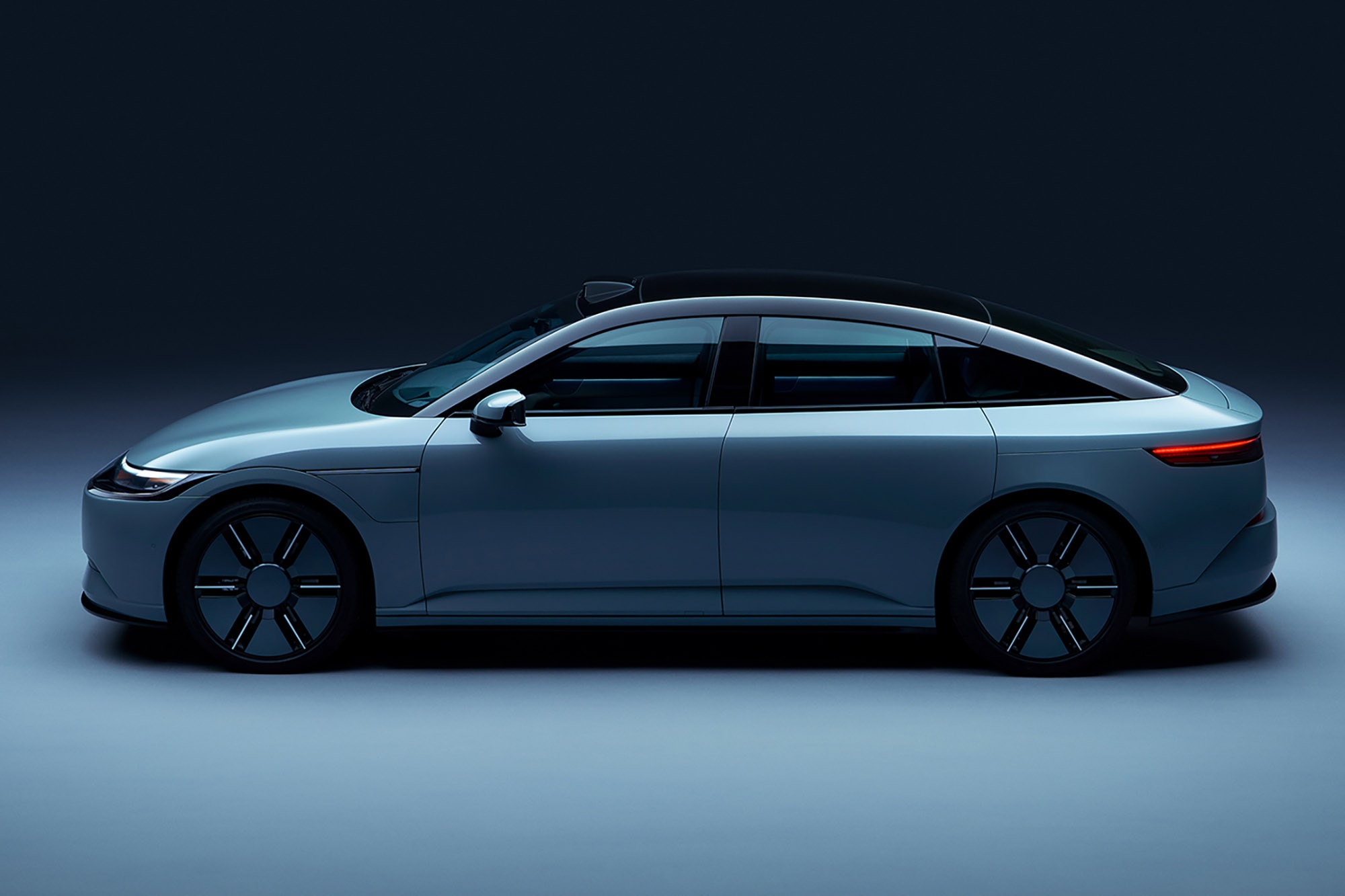 Sony Honda Mobility
Sony Honda Mobility
QuickTakes:
The electric Afeela prototype unveiled by Sony Honda Mobility at the 2024 Consumer Electronics Show in Las Vegas looks nearly ready for the road, bringing the world one step closer to an actual PlayStation car.
Sony Honda Mobility (SHM) is a marriage that closely integrates the electronics and gaming behemoth's Playstation software and hardware expertise with the Japanese carmaker's mobility prowess to produce a new lifestyle-focused electric vehicle. Afeela aims to create a sensory-rich environment that acts as a mobile third space outside of the home. With its latest prototype, the brand's vision is becoming more defined.
At first glance, little has changed from the show car that debuted at the 2023 Consumer Electronics Show (CES). For CES 2024, SHM's Afeela prototype was, indeed, nearly identical to last year's model inside and out, but the company tweaked a few details based on feedback from prospective owners. Some elements make it slightly more conventional, and others help the new vehicle conform to federal vehicle regulations, as production is scheduled to begin in 2026.
In addition to showing off the new features, SHM released some specifications for the evolved prototype sedan, which will be available for pre-order in 2025.
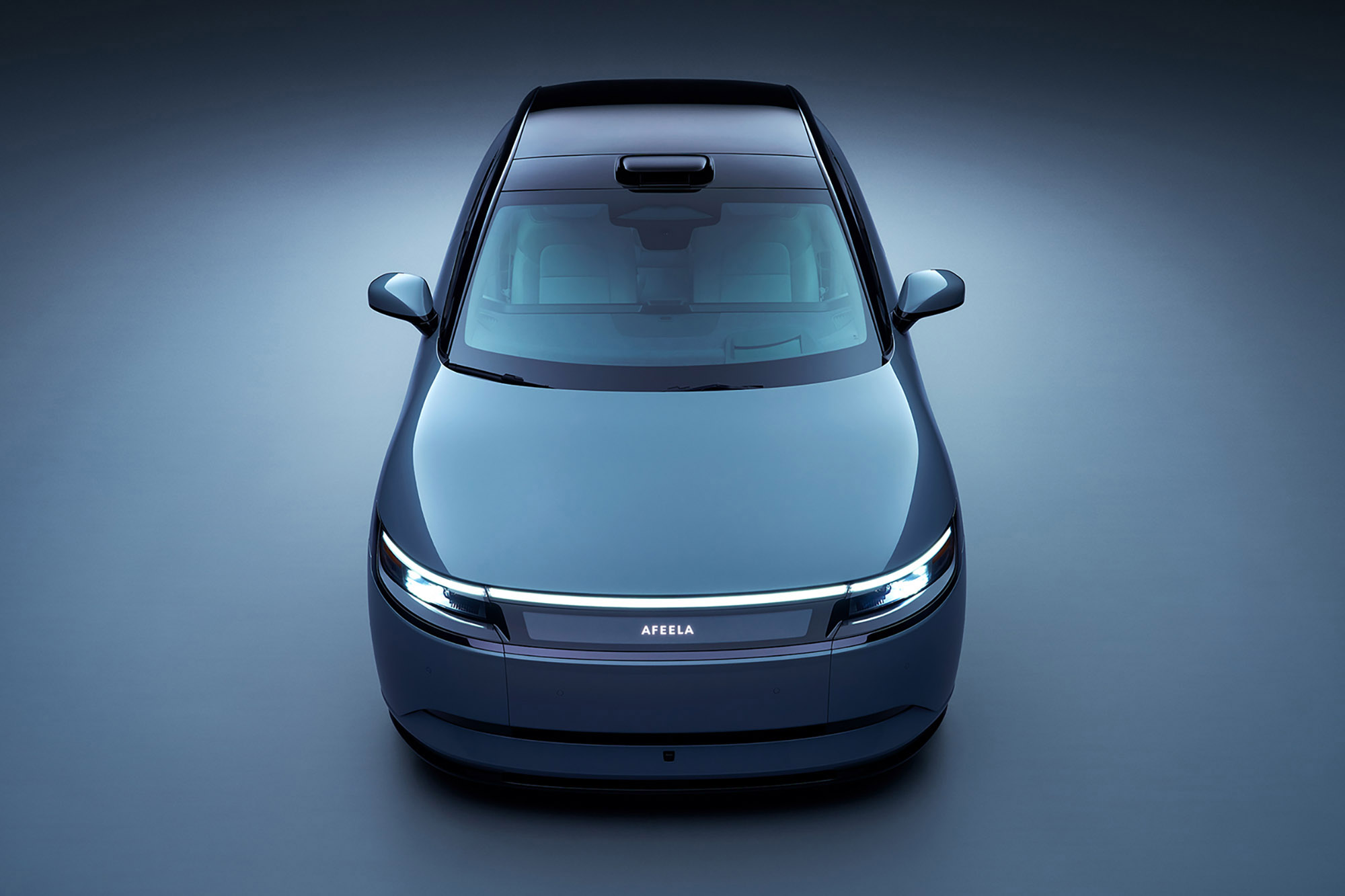 Sony Honda Mobility
Sony Honda Mobility
Afeela Roughly the Same Size as a Honda Accord
At 193.5 inches long and 74.8 inches wide, the Afeela is a tad longer than the 2024 Toyota Camry (192.1 inches), and 2 inches shorter than the 2024 Honda Accord (195.7 inches).
While specifications for the final product are likely to change, SHM revealed its current Afeela prototype is powered by a 91-kWh lithium-ion battery and front and rear 180-kW motors.
Whether the listed battery spec is its actual size or its usable capacity wasn't detailed — and it could differ from what will be released in 2026 — but at present the Afeela is capable of up to 150-kW charging speeds. Performance will likely be a key attribute of the upcoming sedan, which is equipped with front double wishbone and rear multilink suspension on air springs. The new carmaker did not release specs on range, top speed, or acceleration.
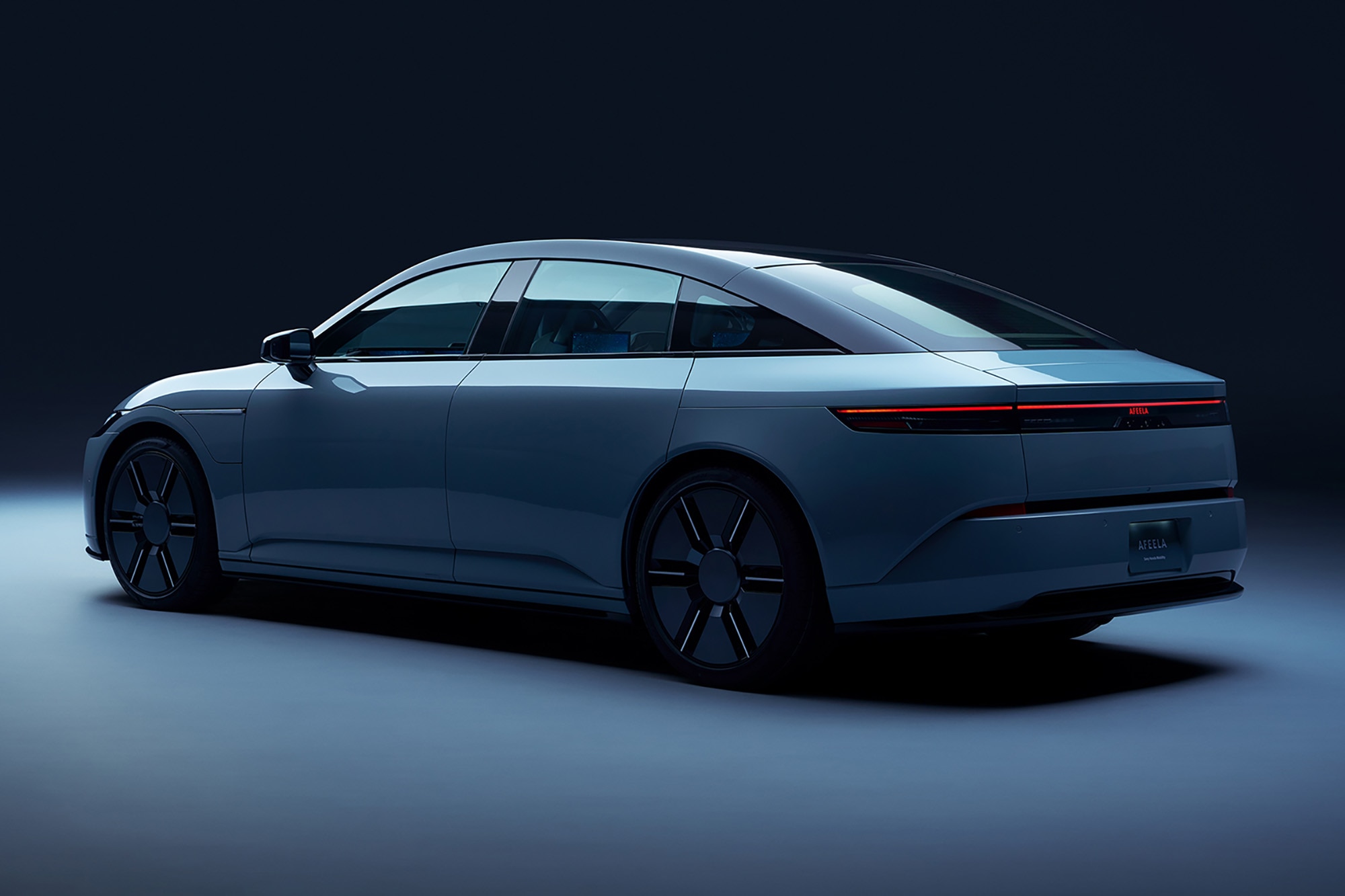 Sony Honda Mobility
Sony Honda Mobility
Some Design Concessions Were Made to Conform to Federal Regulations
The remarkably smooth exterior design of the Afeela sedan remains nearly identical to last year's prototype. It's still outfitted with a single roof-mounted lidar, which is a light detection and ranging remote sensing method, and 45 sensors inside and out. The carmaker also added traditional side-view mirrors in place of the side-mounted cameras previously used. Its front headlamps have also changed shape slightly to comply with federal regulation.
In its debut, the EV didn't have door handles. Instead, it relied on facial recognition to automatically open the doors as the owner approached. That feature remains, but due to consumer feedback and usability concerns, black switches flush with the window trim have been added to the doors for manual operation.
SHM demonstrated additional functionality of the exterior Media Bar, an LED display that extends the full width of the front fascia along the hood. In addition to displaying announcements, the bar can show the car's current charging status and progress — a helpful feature for both owners and other drivers waiting in a charging station queue.
Personalization is a key aim of Afeela, so the Media Bar can also be customized with digital stickers or other announcements — but likely only while parked due to federal regulations.
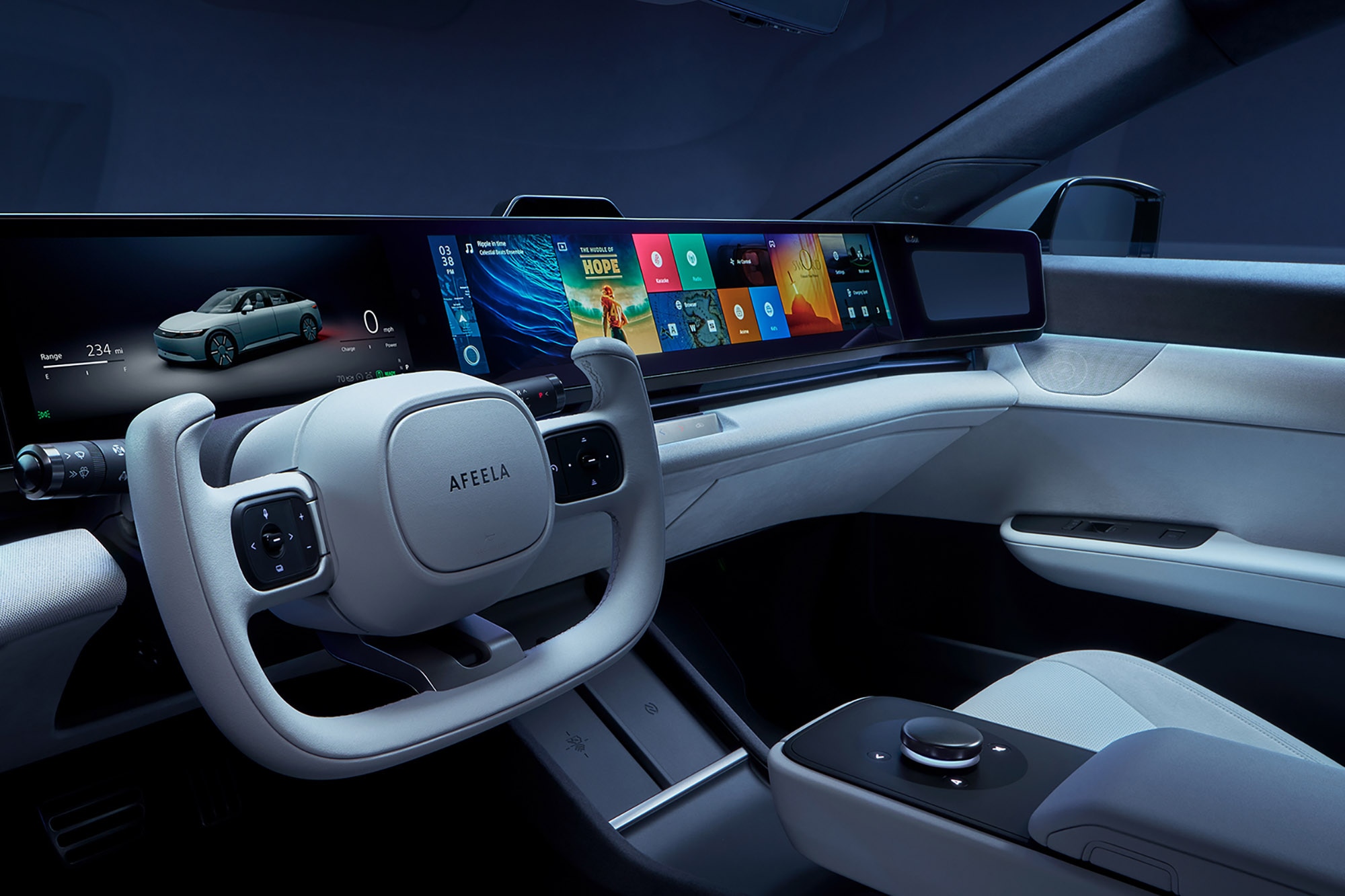 Sony Honda Mobility
Sony Honda Mobility
The Cabin Is More Personalized and Customizable
The Afeela prototype retains its minimalist interior design, which uses a neutral color scheme to help create a calm reprieve from the stimulating world outside. Doubling down on the calming environment, the new brand added noise-canceling technology inside the cabin to counter road noise that's normally drowned out by an engine.
Other than that, Afeela's layout and equipment are unchanged, including the panoramic front and dual rear screens that display streaming movies synchronously or asynchronously, and allow passengers to game by connecting to their home console or a cloud network. These screens also enhance the vehicle's customizable themes and are used, along with sound effects and accent lighting, to change the ambiance or mood of the interior.
The company announced at CES that outside developers will be able to create and add new cabin experiences through the Afeela Co-Creation Program. This means the brand's digital platform will be open to the public to develop new applications, themes, and synthesized eMotor sounds for Afeela's infotainment system that could — in theory— be available for sale or download.
As with Volkswagen, BMW, and Mercedes-Benz, SHM debuted a generative artificial intelligence agent for the vehicle. The company is developing a Mobility Personal Agent in collaboration with Microsoft using Azure Open AI to provide natural language interaction with the vehicle, but the full extent of its capabilities wasn't discussed.
Its navigation system, meanwhile, will be enhanced by Epic Games' Unreal Engine 5, which can layer 3D augmented reality graphics on top of a simulated view of the external environment on Afeela's panoramic display. The feature could be used to provide recommendations on nearby restaurants or points of interest or to add video game-like images to simulated surroundings for a more entertaining driving experience.
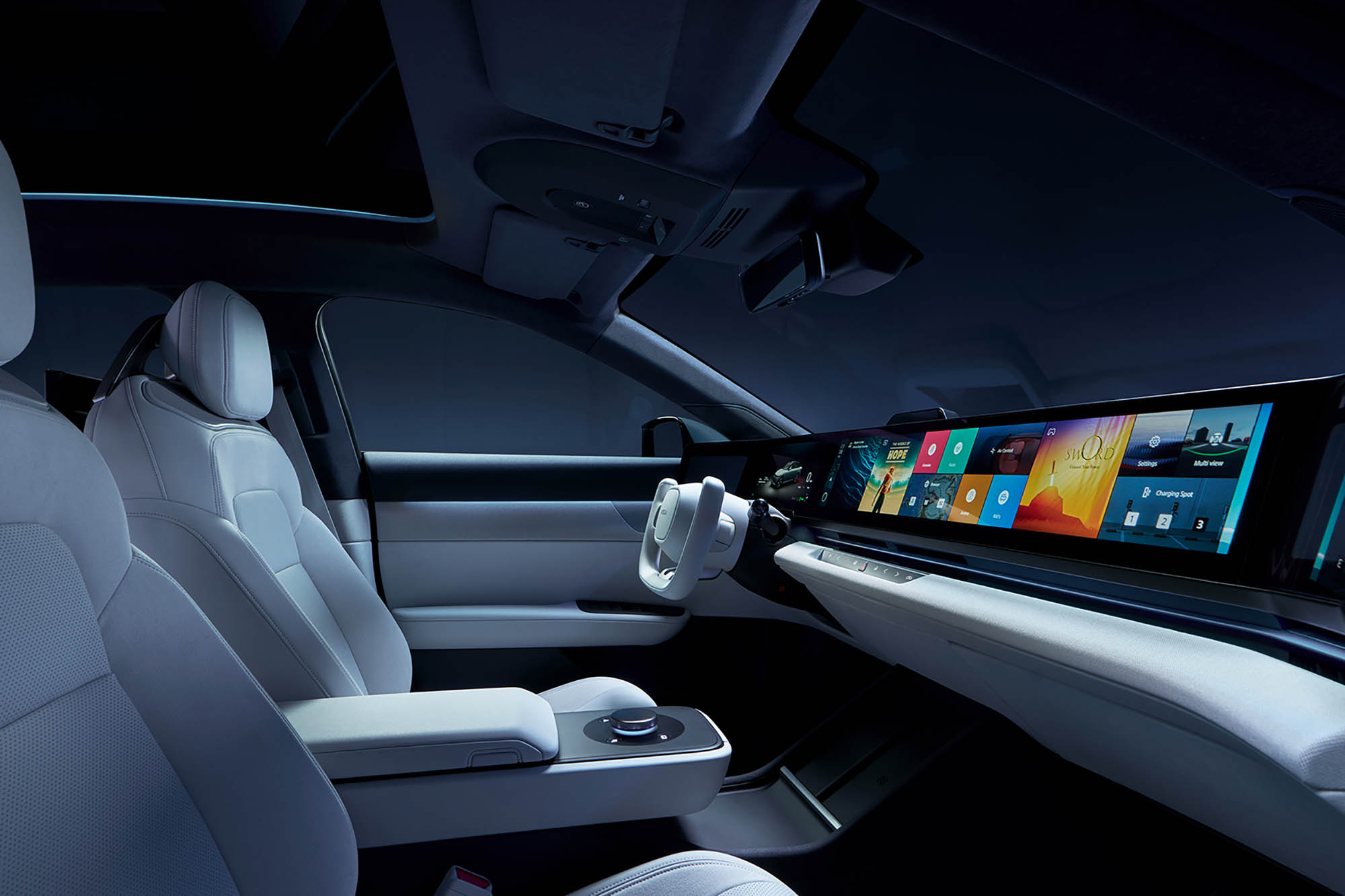 Sony Honda Mobility
Sony Honda Mobility
Enhanced Object Detection Aims to Support Eventual Level 3 Self-Driving
Izumi Kawanishi, SHM president and COO, impressed the audience by driving the updated Afeela prototype on stage at CES using a PlayStation DualSense game controller. While he said that feature is unlikely to be available to consumers when the car enters production in 2026, the vehicle will be flush with Level 2 advanced driver assistance systems (ADAS), such as the Afeela's ability to park itself after the driver exits.
The company is also beefing up Afeela's machine learning architecture with Vision Transformer image recognition. The technology will provide more accurate object detection within the vehicle's surrounding environment using its myriad cameras and sensors, especially at night or in inclement weather.
This should improve the performance of its ADAS features and the vehicle's path planning and also pave the way for Level 3 conditional self-driving capabilities when more of the world is ready to let machines take full control of the wheel.

